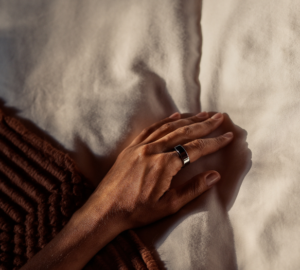With summer officially in full swing, you’re more likely planning your next vacation, pool day, or barbecue menu than plotting out consistent sleep and wake times. And that’s okay!
No matter the season, Oura members’ sleep habits are always top of our mind. To better understand our collective sleep habits, we took a closer look at aggregate data to see what happens in these lazy, longer days of summer.
How Sleep Changes During the Summer
Total sleep duration decreases by 16 minutes among Oura members.
Plus, Oura members’ Sleep Scores decreased by an average of 3 points. However, your sleep need doesn’t decrease. We tend to stay up later, but don’t make up for it by sleeping later. To feel your best during the day, maintaining consistent sleep and wake times is key — tap into Oura’s bedtime guidance to fine-tune your habits.
One fun quirk? Oura members in our home country of Finland tend to see their total sleep increase in July and August, a time when many are on extended summer holiday.
RELATED: Data Reveals Effects of Summer Activities and Travel on Oura Members’ Biometrics
Sleep latency, the amount of time it takes to fall asleep, increases by 2 minutes.
Light suppresses the body’s production of melatonin, so if you’re enjoying the sunlight later into the evening, melatonin release will be delayed, and it may take longer to fall asleep. Take advantage of the longer days by getting more natural light in the morning, then focus on creating a dimmer environment in the evening before bed.
Core body temperature also plays a factor. In the summer months, make sure to keep your sleeping environment on the cooler side: 65°F or 18°C is ideal for sleep. Another habit that can help: Taking a warm bath 1-2 hours before bed can cue your body to wind down as well.
Less time is spent in REM sleep.
Highly important REM sleep is critical for brain health and emotional resilience. Our data shows that the percentage of REM sleep decreases during the summer months. Why? Oura’s Lead Scientist, Heli Koskimäki, explains:
“When temperatures rise and it’s lighter for longer outside, we tend to spend less time in bed, cutting our total sleep time short. When we sleep less, we shift the balance of our sleep stages towards deep sleep and away from REM sleep which tends to occur more in later sleep cycles.” So, spending more time in bed to ensure your body has time to cycle through REM sleep is key.
Another potential culprit: In the summer, we tend to socialize more—and drink more alcohol, which can wreak havoc on REM sleep.
READ MORE: REM Sleep: What Is It & How Can You Get More?
4 Ways to Optimize Your Sleep in the Summer Months

1. Take advantage of the light.
Make sure to get exposure to sunlight when you wake up, and also in the afternoon when you may experience a slight dip in alertness, suggests Rebecca Robbins, PhD, Harvard Medical School instructor and Oura advisor. “Walking outside will give you a boost of energy and avoid having to rely on energy drinks or caffeine that may interfere with your sleep that night.” she notes.
2. Keep your bedroom dark.
“As the sun sets later, you may experience a delay in when you feel sleepy as well,” Robbins says. “To encourage your body to produce melatonin, your body’s sleepiness signal, earlier try making your sleeping environment as dark as possible to help your body wind down.”
READ MORE: Everything You Need to Know About Melatonin
3. Cool it down.
Warmer sleeping environments have been shown to cause fragmented sleep and more disturbing dreams. To help keep yourself cool, change your bedding and pajamas with the season to use breathable, light fabrics for summer, and avoid heavy comforters or blankets, Robbins recommends. “Choose pajamas that are made from breathable fabrics that wick moisture, or, if you’re comfortable, wear nothing at all!”
Also go for climate control: If you keep your curtains closed during the day to keep your bedroom cool, then open the windows at night to allow for cool fresh air, Robbins says. “Alternatively, a window fan or air conditioning unit can help keep your bedroom cooler.”
RELATED: 5 Ways to Upgrade Your Sleep Hygiene
4. Try a mindfulness meditation.
“If you toss and turn from being too hot, get out of bed, sit on the floor or a chair, and practice mindfulness meditation or progressive muscle relaxation (clenching and releasing muscle groups),” Robbins suggests. This practice can not only cool off your body, but also calm your mind in preparation for sleep.
READ MORE: Try Oura’s Guided Sleep Meditations for Deep and Restful Sleep





